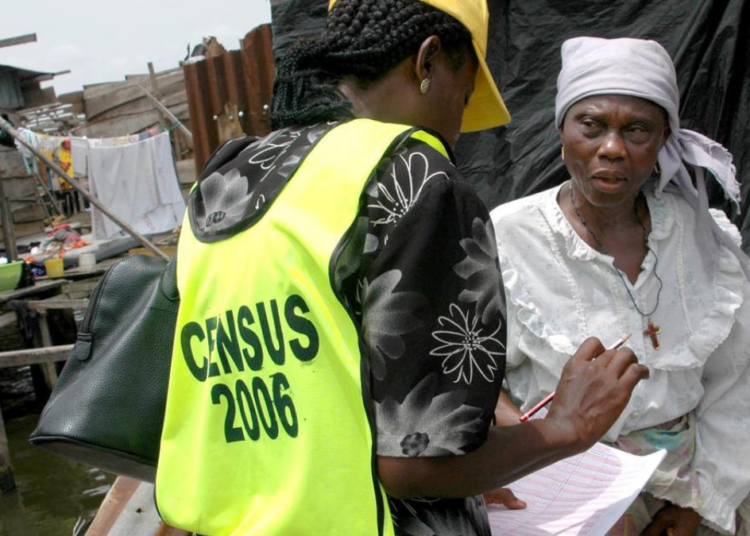It is deeply concerning that the federal government has made no budgetary provision to conduct a national census in 2024.
This glaring omission raises serious doubts about the government’s commitment to proper national planning and development.
No doubt, a comprehensive census provides crucial data needed for evidence-based policymaking, resource allocation, and infrastructure development.
The lack of up-to-date census information hampers the government’s ability to make informed decisions that uplift citizens’ welfare.
We recall that President Bola Tinubu had recently described the absence of comprehensive data as the major technological affliction affecting Nigeria’s growth and Africa. He noted that the inadequacy of data had impeded Nigeria’s ability to make informed decisions, perpetuating a circle of missed opportunities and sub-optimal outcomes.
READ ALSO: No Provision For Census Next Year – Senate
It is pertinent to note that the last national census was conducted 17 years ago in 2006. A lot has changed in Nigeria since then. The result of the 2006 census put the nation’s population at 140.43 million persons comprising 71.3 million males and 69.0 million females.
By that result, Kano had the highest population figure with 9.4 million, followed by Lagos with 9.1 million.
Others among the top ten states include Kaduna (6.1 million), Katsina (5.8 million), Oyo (5.5 million), Rivers (5.1 million), Bauchi (4.6 million), Jigawa (4.3 million), Benue (4.2 million) and Anambra (4.1 million).
Before the 2006 census, the 1991 census put Nigeria’s population at 89 million. In the 16-year period between 1991 and 2006, the country’s population grew by 57.3%.
In the last 17 years, the federal government has planned based on population projections by the National Bureau of Statistics (NBS) which had projected that the country’s population would have grown up to 193 million persons in 2016, a 37.8% increase over a ten-year period.
The population has increased substantially, new demographic trends have emerged, there have been significant internal migrations, and the economy has evolved.
In our view, any plans and policies based on 17-year-old census data are completely outdated and disconnected from reality.
There is no justifiable reason for the repeated delays and postponements of the census exercise. The National Population Commission had commenced preparations and spent over N200 billion mobilising staff and acquiring equipment.
Earlier this year, the exercise was postponed twice despite assertions of readiness by the NPC. Now, the 2024 budget makes no allocation for the census, rendering futile the billions already spent.
This displays a disturbing lack of seriousness and proper planning by the authorities. The importance of timely, accurate census data simply cannot be overstated.
Firstly, the census determines the allocation of representation and federal resources amongst states. Outdated population figures undermine fair and equitable distribution of legislative seats and funds. Some states are unfairly disadvantaged while others benefit unduly.
Secondly, the census provides vital statistics required for national development planning. Data on population growth rates, fertility rates, life expectancy, literacy levels, employment levels and poverty rates allows the government to formulate strategic policies and interventions in health, education, infrastructure and social welfare.
Where will schools, hospitals, roads, houses and industries be built without knowing the distribution and needs of the population?
Thirdly, the demographic data from the census guides sound economic planning and promotes private sector development.
Investors need reliable statistics on population, incomes, consumption patterns and access to amenities when making investment decisions. Lack of accurate figures discourages investments and economic growth.
Fourthly, detailed census data enables adequate disaster preparedness and response.
Authorities require up-to-date information on populations living in high risk areas to plan effective emergency measures. Censuses provide statistics on displaced persons and vulnerable groups that need focused interventions during disasters.
The government’s nonchalance towards the census exercise demonstrates insensitivity, misplaced priorities and apathy towards development planning.
The focus seems to be short-term political expediency rather than long-term national interests. There needs to be bipartisan consensus and a shared vision of the census as a nation-building exercise, beyond partisan politics.
It is thus absolutely imperative that the federal government revises the 2024 budget to make adequate financial provisions for the urgent conduct of the census.
The National Assembly must assert its oversight role to ensure this happens. Nigeria’s continued progress and prosperity hinges on having enlightened leadership that leverages data to make informed policies for public welfare. A national census would be a step in the right direction.





